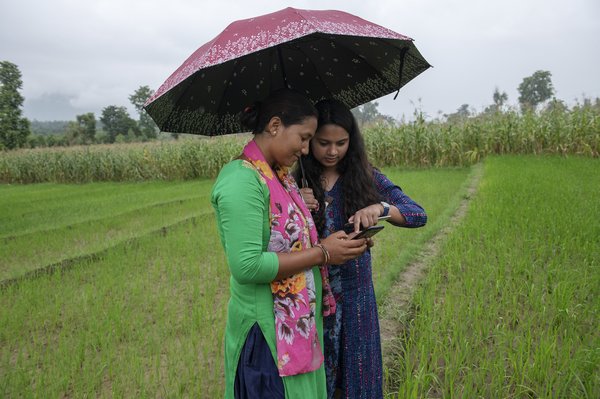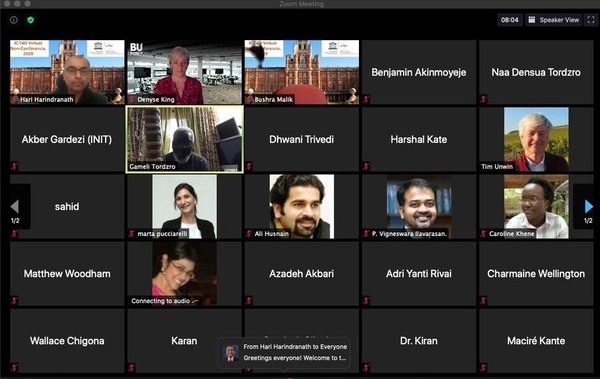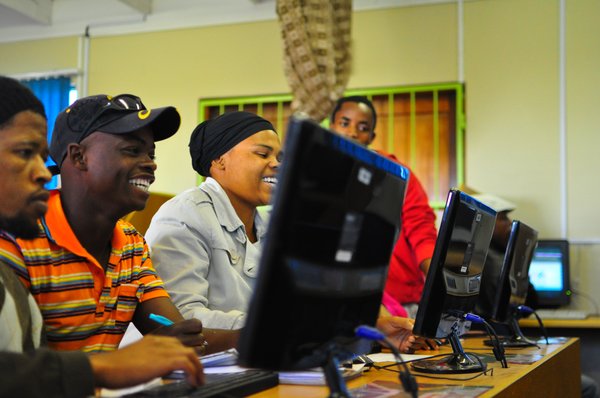
Once installed, the solar energy serves multiple purposes: charging cell phones... Photo via IDB Lab. CC BY 2.0.
This working paper was originally published via UNESCO Chair in ICT4D. The paper is authored by Tim Unwin, Louis Herns Marcelin, Jailson de Souza e Silva, Guillherme Otero, Maria Rosa Lorini, Cynthia Nkiruka Anyadi, Dalcio Marinho Gonçalves, Danilo Pereira Sato and G. Hari Harindranath.
This working paper is the fourth in the series produced as part of the output of Work Package 9 on technology, inequality and migration within the MIDEQ Hub, a multi-disciplinary research project in 12 countries of Latin America, Africa and Asia, including the Haiti-Brazil migration corridor. It presents the results of three iterations of an online survey totalling 372 respondents most currently living in Brazil, and mainly from Haiti; 92.7% of those who reported their status identified themselves as migrants, with the remainder being family members of migrants (5.5%) or returned migrants (1.8%). Following a summary of the methodology, which explains the impact of COVID-19 on our research practice and why an online survey was used to replace our originally planned interviews and focus groups, the paper provides an overview of the most important results and an exploratory data analysis, focusing on the potential influence of age, gender, countries of origin, migration status, and occupational status on the ways in which respondents use digital technologies and for what purposes. Three important conclusions for the subsequent stages of our research on the inequalities associated with migration and how digital tech may be used to reduce these are: first, the migrants responding to this survey are from very different backgrounds, and these differences have a strong influence on their use of digital tech; second, many migrants aspire to use digital tech for purposes that they could readily do if they knew how; and third, none of the migrants specifically identified inequality or equity as issues that they would like to use digital tech to address.



